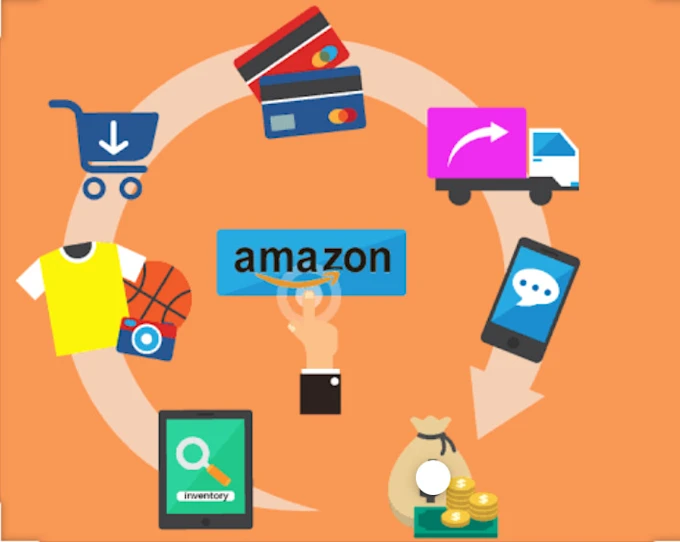The rise of e-commerce has paved the way for innovative business models. Among the most popular today is the Amazon Done For You (DFY) store concept. These stores allow investors to participate in Amazon’s booming marketplace without handling the day-to-day operations themselves. But a common question many potential investors ask is: How do Amazon Done For You stores actually make money?
In this article, we’ll explore the exact profit pathways, operational framework, and services behind these stores — especially how platforms like ProCommerce are revolutionizing DFY solutions for passive income.
Understanding Amazon Done For You
Before diving into how these stores generate revenue, let’s quickly define what Amazon Done For You means. In simple terms, a DFY Amazon store is a fully managed Amazon business built and operated by experts on behalf of the investor.
The service typically includes:
- Product research
- Store setup
- Inventory sourcing
- Listing optimization
- Customer service
- Order fulfillment
Companies like ProCommerce offer this complete package, making it easier for individuals with little to no e-commerce experience to start and scale.
Revenue Streams for Amazon DFY Stores
1. Retail Arbitrage or Online Arbitrage
One of the most common strategies is retail or online arbitrage, where products are bought at a lower price from retail or online stores and sold at a higher price on Amazon.
Profit is made from the difference between the buying price and the selling price, minus Amazon fees and shipping costs. This model is simple but requires strong market research and quick turnaround.
2. Wholesale Reselling
DFY stores often partner with wholesalers to purchase products in bulk at discounted rates. These are then sold individually on Amazon for a profit.
This model benefits from volume discounts and better inventory control. A reputable Amazon DFY provider like ProCommerce usually negotiates directly with suppliers to secure better pricing, increasing the store’s profit margin.
3. Private Labeling
Some DFY services go a step further and help you create your own branded product. This approach is known as private labeling. It allows for greater control over pricing, brand identity, and customer loyalty.
Private label products can offer higher margins, but also come with longer lead times and upfront manufacturing costs. However, once established, they offer recurring and scalable revenue.
The Profit Breakdown
To truly understand how DFY stores make money, let’s look at a sample profit structure:
Example:
- Product cost from supplier: $8
- Amazon selling price: $25
- Amazon FBA fees: $6
- Shipping cost: $2
- Net profit per unit: $9
Now, let’s say your store sells 400 units per month. That’s a profit of $3,600/month, largely on autopilot with a managed DFY model. With scaling and brand development, monthly profit can exceed five figures.
How DFY Providers Make Money
It’s also important to understand how the DFY companies themselves earn. They typically charge:
- Initial Setup Fee: A one-time investment ranging from $10,000 to $50,000, depending on the service scope.
- Revenue Share: Some providers take a percentage (often 20%-50%) of monthly net profit.
- Ongoing Management Fees: This could be a flat monthly fee or performance-based pricing.
This model ensures they’re incentivized to grow your store — the more you earn, the more they earn too. Companies like ProCommerce often offer scalable plans tailored to your investment size and risk tolerance.
Scaling and Passive Income Potential
A well-optimized DFY Amazon store doesn’t just make small monthly gains — it scales over time. Here’s how:
1. Expanding Product Lines
As sales grow, more products are added to the store. This expands revenue streams and customer reach.
2. Automated Fulfillment via FBA
Amazon’s Fulfilled By Amazon (FBA) handles warehousing, shipping, and customer service. This means less operational headache and more time focusing on growth or enjoying passive income.
3. Leveraging Amazon Ads
Strategic use of Amazon Sponsored Ads can drastically boost visibility and sales. Most DFY providers include ad management as part of their service.
4. Global Selling Opportunities
Many DFY services help expand your store into international Amazon marketplaces, multiplying earning potential without doubling the workload.
Risks and Considerations
While the model sounds attractive, like any investment, Amazon DFY stores come with risks:
- Market saturation: Popular products may face high competition.
- Account suspensions: Amazon has strict rules; violations can lead to store suspension.
- Dependence on third-party providers: Your store’s success depends on how skilled and transparent the DFY service is.
- Upfront cost: The initial investment can be high, and profits aren’t immediate.
This is why working with a trusted provider like ProCommerce is crucial. They offer transparency, experience, and proven results.
Why ProCommerce Is a Leading DFY Partner
Many entrepreneurs are choosing ProCommerce as their DFY Amazon store provider — and for good reason.
They offer:
- End-to-end store management
- Market-tested strategies
- Real performance metrics
- White-glove onboarding
- Reliable customer support
Their goal is simple: build profitable stores that become passive income machines for clients.
Who Is This Model For?
Amazon DFY stores are perfect for:
- Busy professionals wanting a side income
- Investors looking for e-commerce diversification
- Retirees seeking passive income
- Entrepreneurs without time or expertise to run an Amazon business
If you’re serious about leveraging e-commerce in 2025 and beyond, this model offers scalability with expert support behind the scenes.
Final Thoughts
Amazon Done For You stores are transforming how people enter the e-commerce space. By outsourcing the operational complexity to experienced providers like ProCommerce, investors can enjoy a largely hands-off business model with scalable profit potential.
Whether it’s through retail arbitrage, wholesale reselling, or private labeling, these stores generate income by tapping into Amazon’s massive customer base and logistics infrastructure. However, success depends on choosing the right DFY partner, having realistic expectations, and staying engaged with the store’s performance.
So if you’re ready to explore the world of e-commerce without starting from scratch, an Amazon DFY store might just be your smartest investment move.
